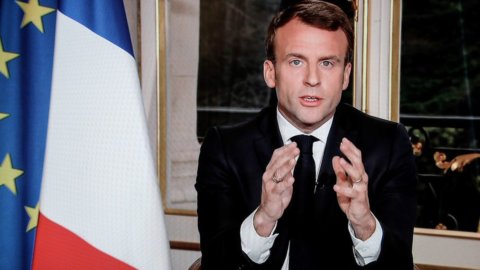They will also be cost 12 billion pounds (over 14 billion euros), which in times of crisis are not few, but as was foreseen the London 2012 Olympics (held from 27 July to 12 August) begin to bring the first benefits.
Economists had in fact predicted a induced turnover of £5,33 billion over the next three years, and just today Bloomberg writes that thanks to the sale of Olympic tickets and the increase in services generated by the event, the Great Britain's GDP returned to growth in the July-September period after two consecutive quarters in recession (it hasn't happened since 1975), offsetting all last year's losses and returning to the same level as 12 months ago.
It is in fact a non-trivial growth, the highest in the last 5 years for Queen Elizabeth's subjects: +1%, according to what was revealed by the National Statistics Office, which even exceeds the forecasts of economic analysts (+0,6%) and those even more optimistic of Bloomberg itself (+0,8%). As soon as the news broke, sterling gained against the dollar: is now trading at $1,6118 (+0,5% on yesterday), while the 10-year government bond yield is up 9 basis points to 1,94%.
In detail services, which make up about 75% of GDP, grew by 1,3% drawn by the impressive work of infrastructural renewal implemented in the City not only for the Games, but also looking to the future of a metropolitan area that puts 12 million people on the move every day and has to deal with environmental sustainability. The sale of race tickets would also have contributed 0,2 percentage points of GDP, while industrial production improved by 1,1%, the best figure for over two years now.
But obviously the Olympics cannot solve all problems. "Recovery is slow and uncertain," warns Bank of England Governor Mervyn King, while the comment of the Chancellor of the Exchequer George Osborne is softer: “There is still a long way to go, but these data show that we are on the right track: the economy is healing”.
Yes, because while on the one hand the UK economy continues to lose 3,1% since its peak in the first quarter of 2008, it is equally clear that since the third quarter of 2010, i.e. since the Cameron government came to power, GDP has grown overall by 0,6%. And it is also true that the data published today also saw a reduction in the decline in gross domestic product in the second quarter from -0,7% initially reported to -0,4%, that inflation is at a three-year low, that retail sales rise more than expected and that unemployment fell from 8,1 to 7,9%.
The United Kingdom is therefore the first G7 country to disclose the result of the third quarter, and all this just 15 days after the important decision of the Central Bank, which must dissolve the reserve whether to halt or extend its £375bn stimulus programme.





